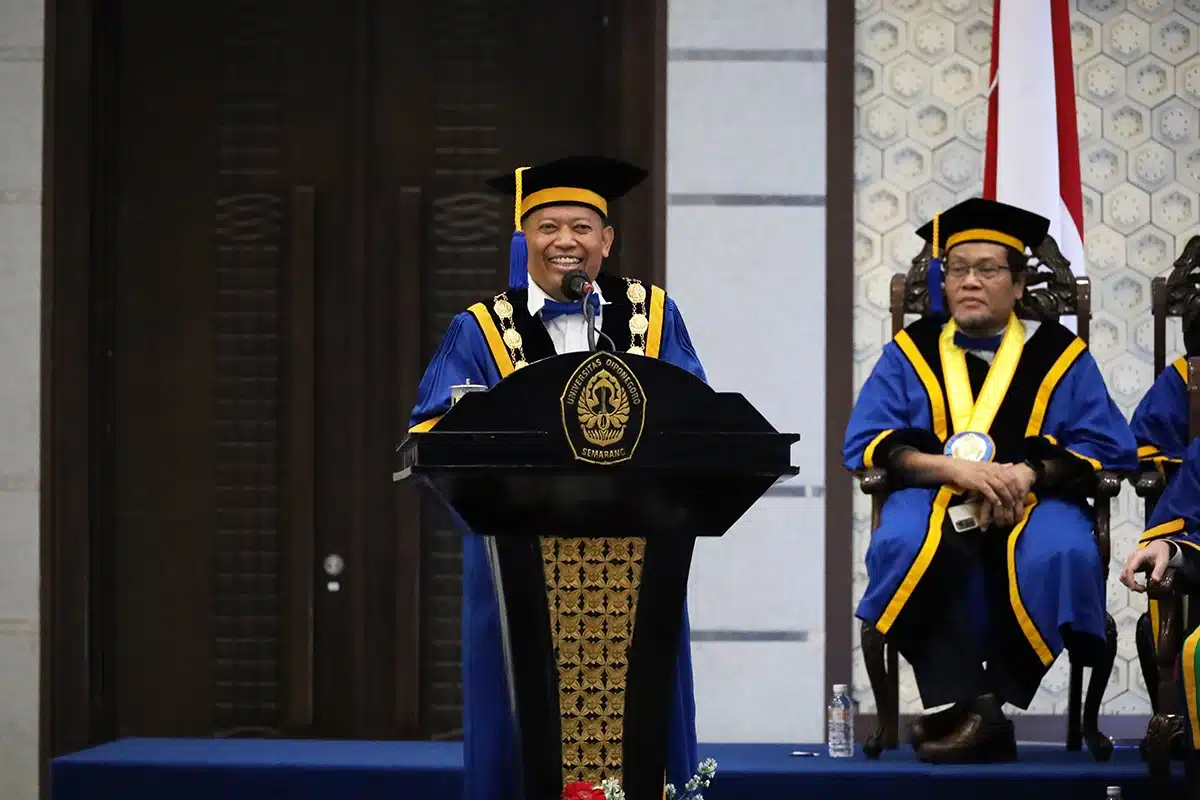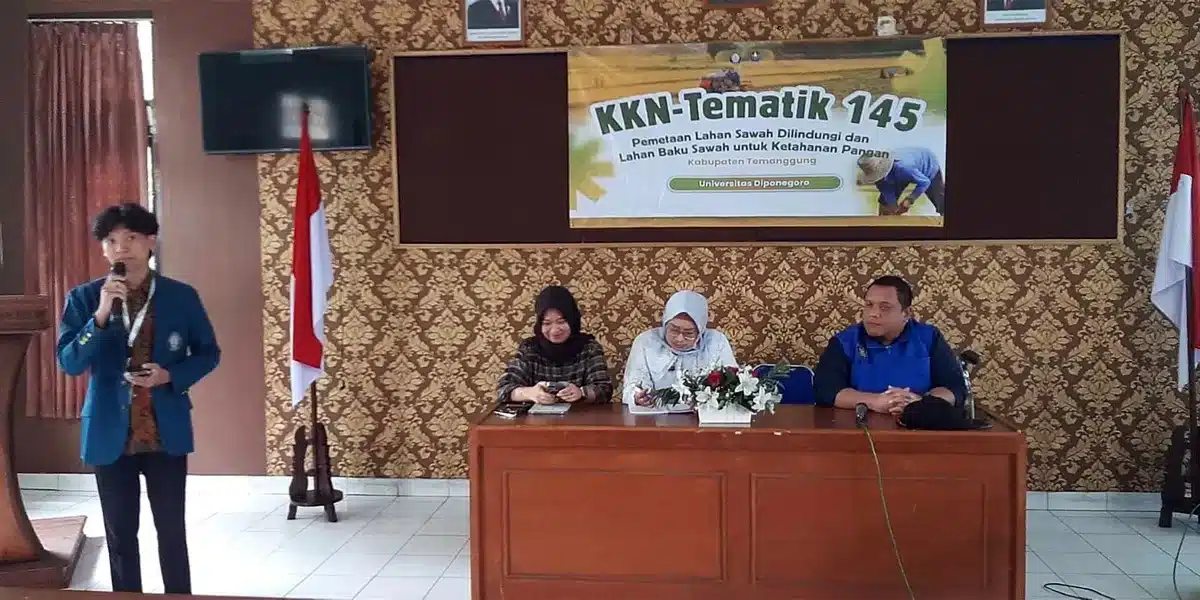Gender equality is the fifth goal of the Sustainable Development Goals (SDGs) which emphasizes the equality of positions between women and men through the elimination of violence against women, eliminating limited access and giving opportunities for women to occupy important positions in both public and private organizations as well as eliminating the existence of human development index gap between men and women.
“Gender equality can only be done through the fulfillment of women’s constitutional rights which is a reflection of Pancasila as a staats fundamental norm which requires justice for all people, including women. The constitutional rights of women consist of forty rights which are divided into fourteen clumps.” said Prof. Dr. Ani Purwanti, S.H., M. Hum. when delivering a scientific speech at her inauguration as a Professor, Wednesday (28/09) at Prof. Soedarto, SH Building, Undip Tembalang campus.
According to the Professor in the field of Law and Society at the Faculty of Law, Diponegoro University (FH Undip), the implementation of the fulfillment of women’s constitutional rights seen from data and facts in society is still not optimal, this can be seen from 5 main indicators, namely Indonesian women still experience inequality gender in the form of subordination, marginalization, excessive workload/overburden, stereotypes and discrimination and acts of violence.
Indonesia as a welfare state that upholds the fulfillment of human rights and has ratified the Convention on the Elimination of All Forms of Discrimination Against Women, through Law No. 7 of 1984 concerning Ratification of the Convention Regarding the Elimination of All Forms of Discrimination Against Women. “Indonesia is required to take concrete steps to overcome gender inequality so that we can realize gender equality in all aspects of life in a sustainable manner, including realizing the fifth goal of the SDGs, namely Gender Equality.” explained Prof. Ani.
In her scientific speech entitled “Pancasila and Gender Equality: Reflections on the Fulfillment of Women’s Constitutional Rights in Indonesia”, Prof. Ani explained that gender equality and inequality can be analyzed using Legal System Theory and Feminist Legal Theory, which state that law has three elements, namely Substance, Structure and Culture and the efforts made can use several Feminist Theories (Liberal, Radical, Cultural).

In terms of substance, there are many laws, regulations and various policies in Indonesia that have emphasized equality and overcome gender inequality, including the birth of the Law on Sexual Violence, but there are still some policies that discriminate against women. Beside that, not many universities have issued regulations which implement the Regulation of the Ministry of Education, Culture, Research and Technology concerning the Prevention and Handling of Sexual Violence in Higher Education.
In terms of structure, at least there is a Ministry of Women’s Empowerment and Child Protection and the National Commission on Women’s Human Rights, but from the data of National Commission for Women, there is an imbalance between the workload and the number of employees who handle complaints of violence against women. Based on Presidential Instruction No.9/2000 on Gender Mainstreaming, all Ministries/Institutions/Armed Forces are required to mainstream Gender in policy making, program planning included in the Budget and Evaluation.
In terms of legal culture, there is a patriarchal culture that is still intertwined both in the thoughts and actions of community leaders, policy makers, the community, including women themselves. “Feminist legal theory emphasizes that legal texts that are gender-biased and discriminatory against women must be revised and a concrete form of feminist legal theory policy, namely the revision of the Marriage Law 16 of 2019, women affirmative action in political institutions and policy makers in the Political Party Law.” she said.
Furthermore, Supreme Court Regulation No.3 of 2017 concerning Guidelines for Adjudicating Women in Conflict with the Law, Supreme Court Regulation No.5 of 2019 concerning Guidelines for Adjudicating Applications for Marriage Dispensation, Regulation of the Ministry of Education, Culture, Research and Technology No.30 of 2021 concerning Prevention and Handling of Sexual Violence in Higher Education, to special train policies women in Jakarta.
“These efforts will also be in line with the Progressive Law which requires the creation of substantive justice, not only procedural justice, especially for women.” concluded Prof. Ani.











